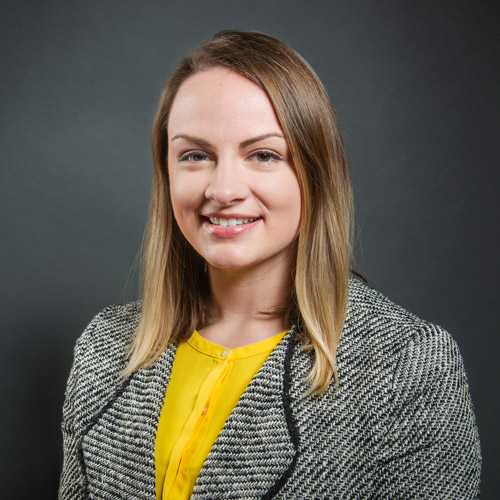Boston University Weekly COVID-19 Report: March 31 to April 6
BU urging all students, faculty, and staff to schedule extra COVID tests; variant sequencing reveals B.1.1.7 is spreading among community from multiple sources
Boston University publishes its COVID-19 testing data on a public-facing dashboard. Gloria Waters, BU vice president and associate provost for research, and Judy Platt, director of BU Student Health Services, provide a weekly update on the overall health of the BU community.
Between March 31 and April 6, 61 students and 11 faculty and staff tested positive for coronavirus at Boston University. Among students, the number of infections has nearly doubled since last week. The Brink asked Judy Platt and Gloria Waters to answer a few key questions on COVID-19 at BU.
Q&A
With Gloria Waters and Judy Platt
The Brink: BU’s COVID numbers were shrinking last week, but now they’re back on the rise. What’s the cause?
Platt: City positivity rates are rising. At BU, we saw a particularly large number of new positive test results come back on Friday. Because variant sequencing data lags by about 10 days, we don’t yet know how many of the new cases are the B.1.1.7 variant, first detected in the UK. We have started to see an increase in B.1.1.7 cases, and I expect that will continue.
A new report indicates the B.1.1.7 variant could be up to 67 percent more deadly than earlier SARS-CoV-2 variants. Are you seeing any evidence of more severe illnesses in BU cases?
Platt: We don’t have enough cases or data to answer that question with any statistical significance. But we are always in communication with other universities, and what I’ve heard and seen anecdotally is that people with B.1.1.7 tend to be more symptomatic. Again, there’s not enough data to prove that here at BU. But it’s a real concern; we don’t want to see people coming down with more severe cases of COVID.
Where are the new cases coming from?
Platt: We can tell by looking at the [specific genetic sequence of a positive test result] that the B.1.1.7 infections are not coming from just one origin, but from multiple sources. That tells us people are mixing households and breaking their bubbles. We don’t have one large cluster developing right now, we have several small clusters. With the COVID vaccines rolling out, we do have this important milestone in sight, but with the increase in variants combined with pandemic fatigue, it’s the perfect storm to create a fourth wave of COVID cases. We know B.1.1.7 is circulating in Massachusetts, so it’s not surprising that it has a presence here at BU. On Cape Cod, the P.1 variant is spreading, so we may soon see evidence that it has reached Boston or BU as well.
Waters: I think people need to remember that there is still a lot we don’t know about whether COVID has long-term effects, even in cases that may be asymptomatic or have mild symptoms. There could be medical consequences to getting COVID that we don’t even know exist yet.
Platt: At BU, we’ve seen a small number of students who needed to go to the hospital. A handful of students have even developed pericarditis—inflammation of the lining around the heart.
With cases back on the rise, how is BU controlling spread?
Platt: We’re recommending everyone—students, faculty, and staff—who is part of our COVID surveillance program to add an additional test to their weekly schedule. So, for students regularly getting two tests per week, they should get three. We’re asking everyone to get an extra test each week all the way through April, to help get us to the end of the semester. This time of year, as we welcome spring, there are lots of reasons that people gather and celebrate together—Patriots Day and Eid al-Fitr are coming up, we just had Easter and Passover. So, if people are going to gather, we can at least try to catch new infections on the other side, before they have a chance to spread further.
Sign up for extra COVID tests, please.
What else do you want the BU community to keep in mind?
Waters: April 19, the day when everyone in Massachusetts will be eligible for COVID vaccination, is just around the corner. You can preregister now to get your information into the state’s queue. The earlier you register, the better chance out-of-state students have of being vaccinated before they leave the area, or before in-state students have to go home to their families.
Gloria Waters has spearheaded teams of BU scientists in their development and deployment of a campus-wide COVID-19 testing program and mathematical modeling of community behavior. Judy Platt, chair of BU’s Medical Advisory Group, oversees clinical management and isolation of students and employees who test positive for coronavirus, and helps manage BU’s contact tracing efforts. They are co-chairs of BU’s Vaccine Preparedness Group, which is overseeing the distribution of COVID-19 vaccines allocated to BU by the Massachusetts Department of Public Health.

Comments & Discussion
Boston University moderates comments to facilitate an informed, substantive, civil conversation. Abusive, profane, self-promotional, misleading, incoherent or off-topic comments will be rejected. Moderators are staffed during regular business hours (EST) and can only accept comments written in English. Statistics or facts must include a citation or a link to the citation.